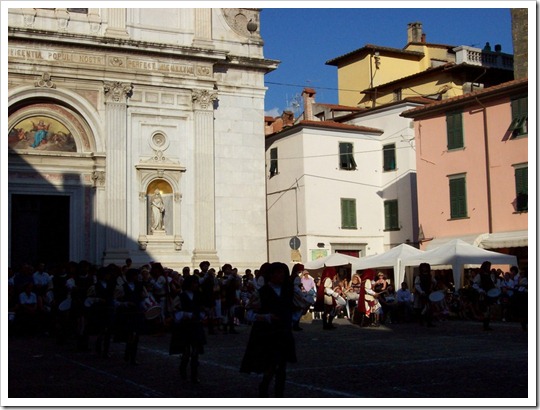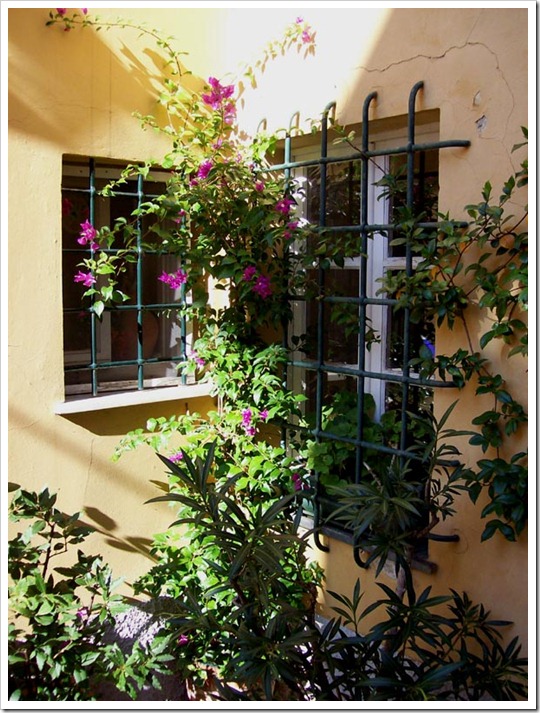While I was replying a reader’s question last week about the differences between the congiuntivo presente and the condizionale, I realised that although I’ve covered the use of the congiuntivo presente I’d never written an article specifically on the use of the condizionale (conditional). So I’m going to make amends, beginning today with il condizionale presente (the present conditional). But first let’s have a look at how we conjugate it:
| Coniugazione del verbo essere: |
Conjugation of the verb to be: |
io sarei
tu saresti
lui/lei sarebbe
noi saremmo
voi sareste
loro sarebbero |
I would be
you would be (singular, informal)
he/she would be
we would be
you would be (plural)
they would be |
The present conditional is used:
1. to politely express a wish or a request:
vorrei un bicchiere d’acqua, per piacere = I would like a glass of water, please
mi potresti prestare una penna? = could you lend me a pen?
scusi, saprebbe dirmi dov’è Piazza del Duomo? = excuse me, could you tell me where Piazza del Duomo is? (literally: … would you know how to tell me …)
 |
| Piazza del Duomo, Pontremoli. Photo by Geoff Chamberlain |
2. to express a personal opinion, or to give advice:
secondo me dovresti andare dal dottore = in my opinion you should go to the doctor
io suggerirei di partire subito dopo pranzo = I would suggest that we leave immediately after lunch
sarebbe meglio se Marco rimandasse la partenza di qualche giorno = it would be better if Marco delayed his departure for a few days
3. to report a piece of news that has not been verified, or that we have doubts about:
secondo alcuni testimoni i rapinatori sarebbero ancora all’interno della banca = according to some witnesses the robbers are still inside the bank (literally: … the robbers would still be inside the bank)
ho sentito che il presidente del club starebbe pensando di presentare le sue dimissioni = I’ve heard that the president of the club is thinking of handing in his resignations (literally: … the president of the club would be thinking of handing in his resignations)
mi è stato detto che Marco vorrebbe trasferirsi in Inghilterra = I’ve been told that Marco would like to move to England
 |
| … una casa al mare in Liguria. Photo by Geoff Chamberlain |
4. to say what we would do if the conditions were different:
se non piovesse andrei a fare due passi = if it didn’t rain, I would go for a little stroll
se fossimo ricchi ci compreremmo una casa al mare in Liguria = if we were rich we would buy a house on the coast in Liguria
se ci fosse abbastanza basilico si potrebbe fare una pasta al pesto = if we had enough basil we could make pasta with pesto (literally: if there were enough basil, one could make pasta with pesto)
Next week I’m going to cover the past conditional. A presto!







Comments:
andreas:
Salve Serena!
Che bella Bougainvillea sulla casa al mare in Liguria.
Saluti da Andreas
Serena:
@andreas Ciao Andrei!
Magari fosse mia quella Bouganvillea! Chissà, forse un giorno riuscirò ad avere la mia casetta al mare!
Saluti da Serena
Fred:
Hello, I have been following your blog for a long time and I very much enjoy it. I have relatives in Trentino and I will be visiting them again possibly next year. I would like to stop by and see you both when I make that trip to Italy. Please continue to send your very interesting blogs I have learned a great deal by reading your emails. I have a question for you.. Could you please tell me what the word intendersela means?
Serena:
@Fred Salve Fred, scusa per il ritardo. In the past few days I had problems with logging on the site. Now it seems to work. It will be nice to meet you, we always enjoy when we can meet a reader. Let us know when you are coming to Italy.
As for intendersela, the first, more straightforward meaning is “to get on well”. From this, we often imply that there are some illegal businesses going on between two people “che se la intendono”. Finally, intendersela is also used to say that two people are having an affair: “Marco se la intende con la moglie del professore”.
Spero di averti aiutato.
Saluti da Serena